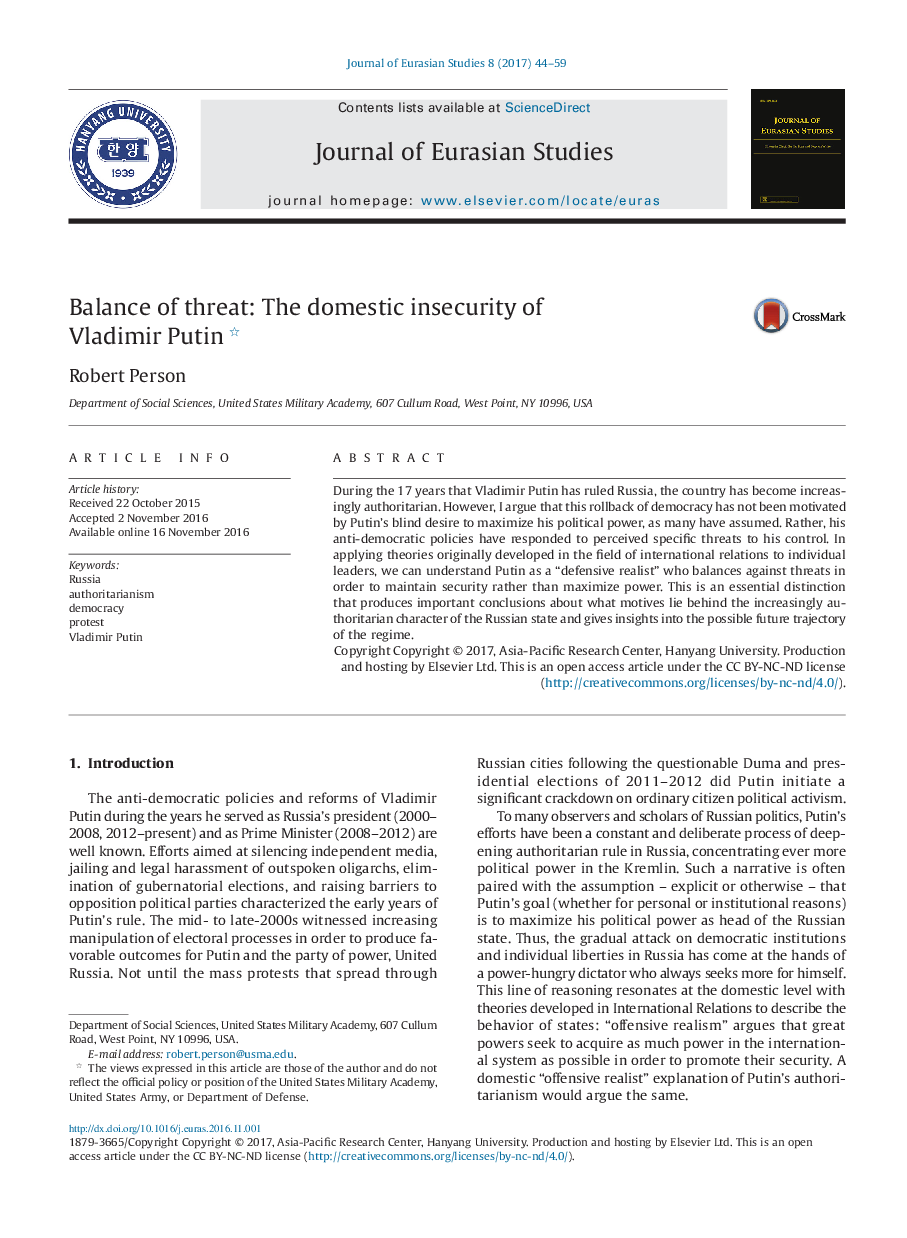| Article ID | Journal | Published Year | Pages | File Type |
|---|---|---|---|---|
| 5126604 | Journal of Eurasian Studies | 2017 | 16 Pages |
During the 17 years that Vladimir Putin has ruled Russia, the country has become increasingly authoritarian. However, I argue that this rollback of democracy has not been motivated by Putin's blind desire to maximize his political power, as many have assumed. Rather, his anti-democratic policies have responded to perceived specific threats to his control. In applying theories originally developed in the field of international relations to individual leaders, we can understand Putin as a “defensive realist” who balances against threats in order to maintain security rather than maximize power. This is an essential distinction that produces important conclusions about what motives lie behind the increasingly authoritarian character of the Russian state and gives insights into the possible future trajectory of the regime.
